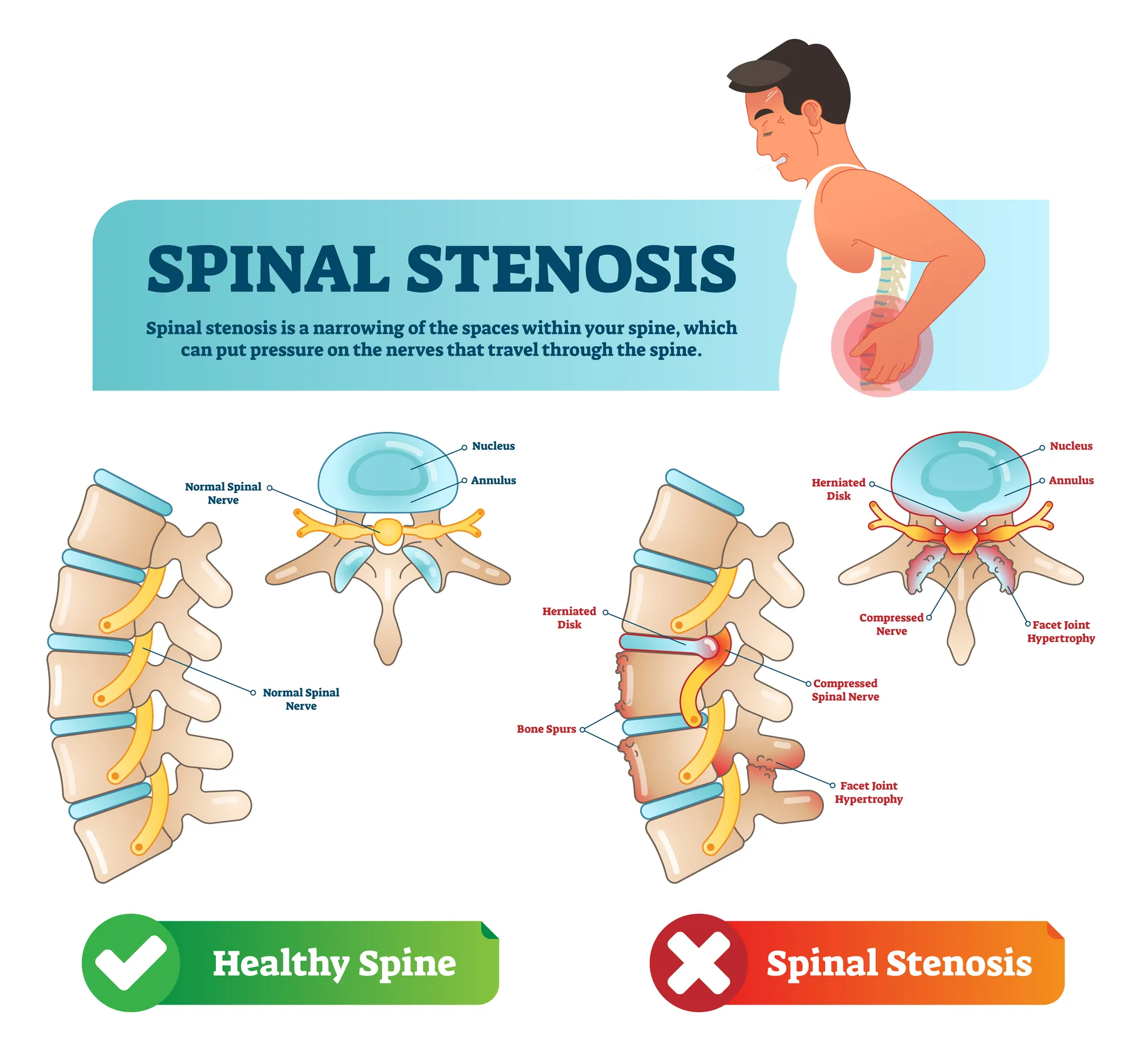Spinal stenosis, a medical condition characterized by the narrowing of spaces within your spine, can cause significant discomfort and limitation in your daily activities due to the pressure it exerts on the spinal nerves. This condition often leads to symptoms such as pain, numbness, and in severe cases, muscle weakness. When conservative treatments such as medication, physical therapy, and injections fail to provide relief, surgery might be considered as a viable option. This blog aims to decode spinal stenosis surgery, delving into the various options available, the outcomes patients can expect, and insights into the recovery process, all explained in layman's language for better understanding.
Surgical Options for Spinal Stenosis
The primary goal of spinal stenosis surgery is to relieve pressure on the spinal cord or nerves and to restore alignment and strength to the spine. The most common surgical procedures include:
Laminectomy: Often referred to as decompression surgery, laminectomy involves removing the back part of the vertebra that covers your spinal canal. This effectively widens the spinal canal, relieving pressure on the spinal cord or nerves.
Foraminotomy: This procedure involves enlarging the bony hole (foramen) where a nerve root exits the spinal canal, alleviating nerve pressure and easing symptoms.
Spinal Fusion: In cases where spinal stenosis is accompanied by instability in the spine, spinal fusion might be recommended. This procedure involves joining two or more vertebrae together, thus providing stability to the spine.
Minimally Invasive Surgery: With advances in medical technology, some procedures for spinal stenosis can now be performed using minimally invasive techniques, which involve smaller incisions, less muscle disruption, and potentially quicker recovery times.
Outcomes of Spinal Stenosis Surgery
The outcomes of spinal stenosis surgery can be quite promising, with many patients experiencing significant relief from their symptoms. Studies indicate that surgical treatment for spinal stenosis often results in improved function and decreased pain levels, thereby enhancing the quality of life. However, it's crucial to have realistic expectations and understand that outcomes can vary based on factors such as the severity of the stenosis, the specific surgical procedure, and the patient's overall health.
Recovery Insights
Recovery from spinal stenosis surgery is a gradual process and can vary widely among individuals. Here are some insights into what patients can typically expect during their recovery period:
Immediate Postoperative Period: Patients may experience pain and discomfort in the initial days following surgery, which can be managed with medications prescribed by the surgeon. Hospital stays can range from a day to several days, depending on the specific procedure and the patient's overall health.
Rehabilitation: Physical therapy plays a crucial role in the recovery process, helping patients regain strength and flexibility in their spine. The rehabilitation program is usually tailored to the individual's specific needs and may start within a few weeks after surgery.
Activity Modification: Patients are often advised to avoid certain activities that could strain the spine, such as heavy lifting, during the recovery period. Gradual return to normal activities is encouraged based on the surgeon's guidance and the patient's progress.
Long-term Care: Maintaining a healthy lifestyle, including regular exercise, proper nutrition, and weight management, is essential for the long-term success of spinal stenosis surgery. Patients may also need to adhere to specific posture and movement techniques to protect their spine.
Conclusion
Spinal stenosis surgery offers a ray of hope for individuals suffering from this debilitating condition, with various surgical options available to alleviate symptoms and improve quality of life. The outcomes of such surgeries are generally positive, provided patients adhere to their surgeon's advice and commit to a comprehensive rehabilitation program. Recovery is a crucial aspect, requiring patience, dedication, and lifestyle modifications to ensure the best possible results.
For those considering spinal stenosis surgery in India, it's imperative to seek the expertise of the best neurosurgeon in India. The country is renowned for its advanced medical facilities and highly skilled specialists, making spinal stenosis surgery in India a viable option for both local and international patients seeking quality and affordable care.

